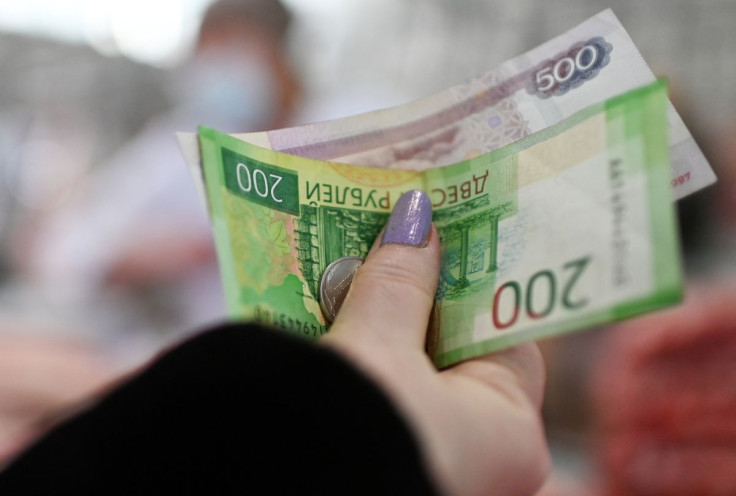Global Shares Fall On Inflation, Central Bank Moves

Global share markets slid on Thursday as U.S. inflation hit almost 8%, making it almost certain the U.S. Federal Reserve will raise interest rates next week, and the European Central Bank sped up the end of its massive stimulus program.
Data showed U.S. consumer inflation running at a 7.9% annualized clip in February, the largest annual increase in 40 years.
Wall Street fell on the data because, while markets expect the central bank to raise the Fed funds target rate by 25 basis points at the conclusion of next week's monetary policy meeting, the CPI data suggested the FOMC could move "more aggressively" to curb inflation, as promised by Fed Chair Jerome Powell last week.
The ECB earlier in the session said it will stop pumping money into financial markets this summer, paving the way for an increase in interest rates as soaring inflation outweighs concerns about the fallout from Russia's invasion of Ukraine.
Talks between Ukraine and Russia on Thursday failed to bring any respite in the conflict, which has trapped hundreds of thousands of civilians in Ukrainian cities sheltering amid Russian air raids and shelling.
The euro retreated from overnight gains following the ECB announcement, and the dollar strengthened on the U.S. inflation report. The benchmark U.S. 10-year Treasury yield rose above 2% for the first time in two weeks.
Melissa Brown, managing director of applied research at Qontigo, said that some inflation can be beneficial to stock prices, but central banks have their work cut out for them managing inflation that is at multi-decade highs.
"We've reached that tipping point between good inflation and bad inflation. It is driving volatility higher, and the higher volatility typically drives away investors," Brown said.
"Sentiment is very uncertain. Now that we are where we are, can (central bankers) tread that fine line between managing inflation and not pushing us into recession?"
MSCI's gauge of stocks across the globe shed 0.19% at 5:12 p.m. EST (2212 GMT).
The Dow Jones Industrial Average fell 112.18 points, or 0.34%, to 33,174.07, the S&P 500 lost 18.36 points, or 0.43%, to 4,259.52 and the Nasdaq Composite dropped 125.58 points, or 0.95%, to 13,129.96.
The pan-European STOXX 600 index lost 1.69%.
The dollar index rose 0.554%, with the euro up 0.04% to $1.0987.
The yield on 10-year Treasury notes was up 6.3 basis points to 2.011% after hitting 2.021%, its highest level since Feb. 17.
Veneta Dimitrova, senior U.S. economist at Ned Davis Research, said that with the sharp rises in energy and other commodity markets due to the war in Ukraine, it will most likely take longer to reach peak inflation.
"This means higher inflation for longer and a treacherous policy path for the Fed ahead," Dimitrova, adding she expects the Fed to proceed with a 25-basis point interest rate increase next week.
"With all the geopolitical uncertainty and market volatility out there, the Fed doesn't want to add to the uncertainty."
Oil fell in volatile trading after the United Arab Emirates backtracked on statements saying OPEC and its allies might increase output to help to plug the gap in exports from Russia. [O/R]
U.S. crude oil futures settled at $106.02 a barrel, down 2.47%, while the international benchmark Brent settled at $109.33, down 1.63%.
European Union leaders will phase out buying Russian oil, gas and coal, a draft declaration showed on Thursday, as the bloc seeks to reduce its reliance on Russian sources of energy, following a ban from the United States.
© Copyright Thomson Reuters 2024. All rights reserved.




















